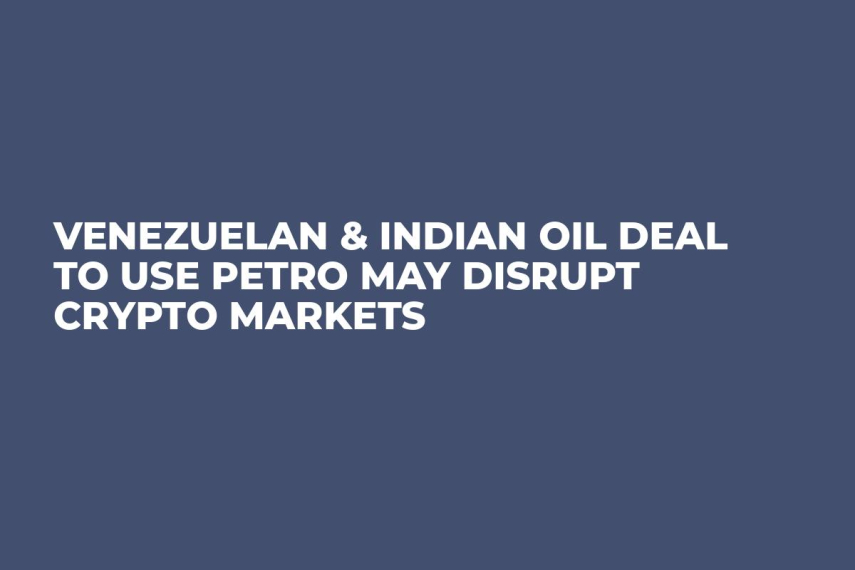
Venezuela’s offer to discount imports of crude oil by 30 percent to India if it uses the oil-backed the Petro, may disrupt cryptocurrency markets, experts say.
The deal between India and Venezuela has been in the works after a group of officials visited India last month, sources say.
Coinsecure, a Delhi-based cryptocurrency exchange has confirmed that a proposal was made by Venezuelan representatives to offer crude oil at 30 percent discount if they use Petro.
Mohit Karla, CEO of Coinsecure says:
“They are going to different countries and making offers. The offer that they have given to the Indian government is: you buy Petro, and we will give you a 30 percent discount on oil purchases.”
Angel Gonzales, Venezuela’s vice-minister for hydrocarbons, told Business Standard that the country’s government expects nations like India to have a “huge interest” in its cryptocurrency.
The deal may be a means of bolstering the decline in Venezuelan crude oil imports to India. Indian imports of Venezuelan oil have declined by nearly 30 percent to 300,000 bpd since last year from the five-year average of 440,000 bpd, according to Reuters.
Many experts say the Petro undermines legitimate cryptocurrencies and international sanctions because it is subject to fluctuation in oil prices and can be easily manipulated by the Venezuelan government.
One of the critical features of Blockchain, the distributed ledger used in cryptocurrency transactions is that all nodes in the network verify and encrypt transactions leaving little to no requirement for outside actors to provide oversight. For this reason, cryptocurrency prices are set by supply and demand.
However, the Petro is significantly different from cryptocurrencies like Bitcoin, because its price is determined by the price of one barrel of oil from Venezuela, which is set by the government, not the market.
Darrell M. West, vice president and director of Governance Studies at the Brookings Institute told CryptoComes in an interview that commodity backed cryptocurrencies like the Petro could disrupt existing cryptocurrency markets.
Darrell M. West said:
“It certainly complicates the situation when governments can set the prices and negotiate a deal for cryptocurrencies. This may encourage other governments to develop their own cryptocurrencies based on natural resources and could disrupt the existing cryptocurrency marketplace.”
The US banned residents from purchasing the oil-backed Petro for these very reasons, but Venezuela remains steadfast that it plans to make the Petro its official currency by 2020.
 Caroline Amosun
Caroline Amosun Tomiwabold Olajide
Tomiwabold Olajide Godfrey Benjamin
Godfrey Benjamin